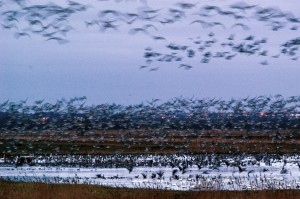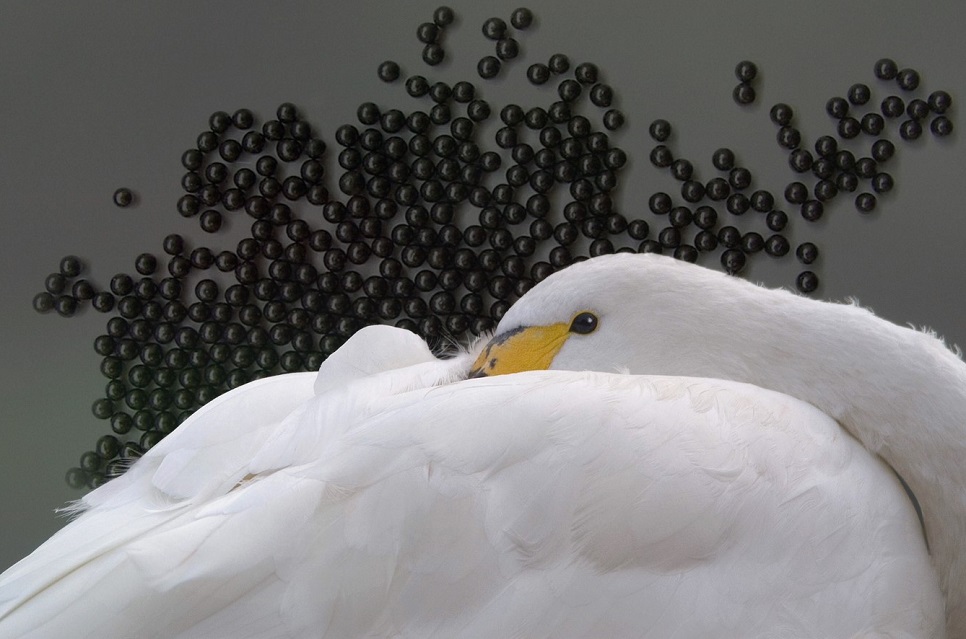Are We Fit to Frack?

Leading countryside groups have joined forces to challenge fracking rules.
Poorly regulated fracking risks harming threatened species and polluting our waterways, according to a report produced by the UK’s leading wildlife and countryside groups including the Wildfowl & Wetlands Trust.
The report, Are We Fit to Frack?, was launched today by the Angling Trust, the National Trust, RSPB, the Salmon & Trout Association, The Wildlife Trusts and the Wildfowl & Wetlands Trust. It is supported by a cross party group of MPs including Zac Goldsmith, Alan Whitehead and Tessa Munt.
The report contains ten recommendations for making fracking safer as the Government continues its push to get companies to apply for licences to explore and drill for shale gas.
The recommendations are based on a full technical evidence report which has been peer reviewed by the Centre for Ecology and Hydrology, one of the UK’s leading ecological research institutes.
The countryside groups are calling for all protected wildlife areas, nature reserves and national parks to be frack-free zones, for full environmental assessments to be carried out for each drilling proposal, and for the shale gas industry to pay the costs of its regulation and any pollution clean-ups.
The report highlights a lack of regulation around shale gas exploitation which could cause serious impacts for a range of threatened species including pink footed geese, salmon and barbastelle bats. It also raises serious concerns about the impact of drilling and water contamination on some of our most precious natural habitats such as chalk streams. These crystal clear waterways are known to anglers and wildlife-lovers as England’s coral reefs – 85% of the world’s chalk streams are found here.
Martin Spray, Chief Executive of WWT, said: “A single frack can use more water than 1,000 people use in a year and if it goes wrong it could contaminate drinking water and ruin wetland habitats. That’s a big burden on communities and it’s a risk we want managed. Today’s report clearly sets out the safeguards that need to be in place before this relatively new industry can operate in our countryside with a degree of safety.”
Martin Harper, RSPB Conservation Director, said: “The Prime Minister has been a great advocate for the shale gas industry. He has said we have the strongest environmental controls in this country and nothing will go ahead if there are environmental dangers.
“Our report puts a spotlight on these risks and reinforces the growing concern about the impact fracking could have on our countryside and wildlife. We argue that more needs to be done to ensure fracking rules are fit for purpose.”
Simon Pryor, National Trust Natural Environment Director, said: “The debate on fracking needs to be evidence based. The evidence from this detailed research clearly reveals that the regulation of shale gas needs to be improved if it’s to offer adequate protection for sensitive environments.
“Whilst the Government is keen to see rapid roll out of fracking, there’s a real danger that the regulatory system simply isn’t keeping pace. The Government should rule out fracking in the most sensitive areas and ensure that the regulations offer sufficient protection to our treasured natural and historic environment.”
Paul Wilkinson, Head of Living Landscapes for The Wildlife Trusts, said: “The Government’s dash for shale gas must not run ahead of our ability to effectively regulate, minimise or eliminate the serious risks fracking poses. This report clearly identifies a range of deficiencies which mean we’re not currently fit to frack without unacceptable risks to wildlife, special places and local communities across the country.”
Martin Salter, National Campaigns Coordinator for the Angling Trust said: “A poor fracking operation has the potential to pollute groundwater supplies and to cause damage to fragile ecosystems in our chalk streams and other rivers. That is why we need the strongest possible regulatory framework, funded from the profits of the industry rather than from taxpayers’ pockets.”
Janina Gray, Salmon & Trout Association Head of Science, said: “The water use of the UK shale gas industry could exacerbate pressure on rivers and wetlands, particularly on sensitive water bodies and those already suffering from over-abstraction, such as chalk streams, and this adds yet further pressure on declining fish populations - the Atlantic salmon being a prime example.
“This, coupled with the risk of water pollution – including groundwater contamination – could, if not correctly managed, be significant - possibly irreversible. Action must be taken now to ensure all necessary environmental protection and regulatory frameworks are in place before extraction goes ahead.”

